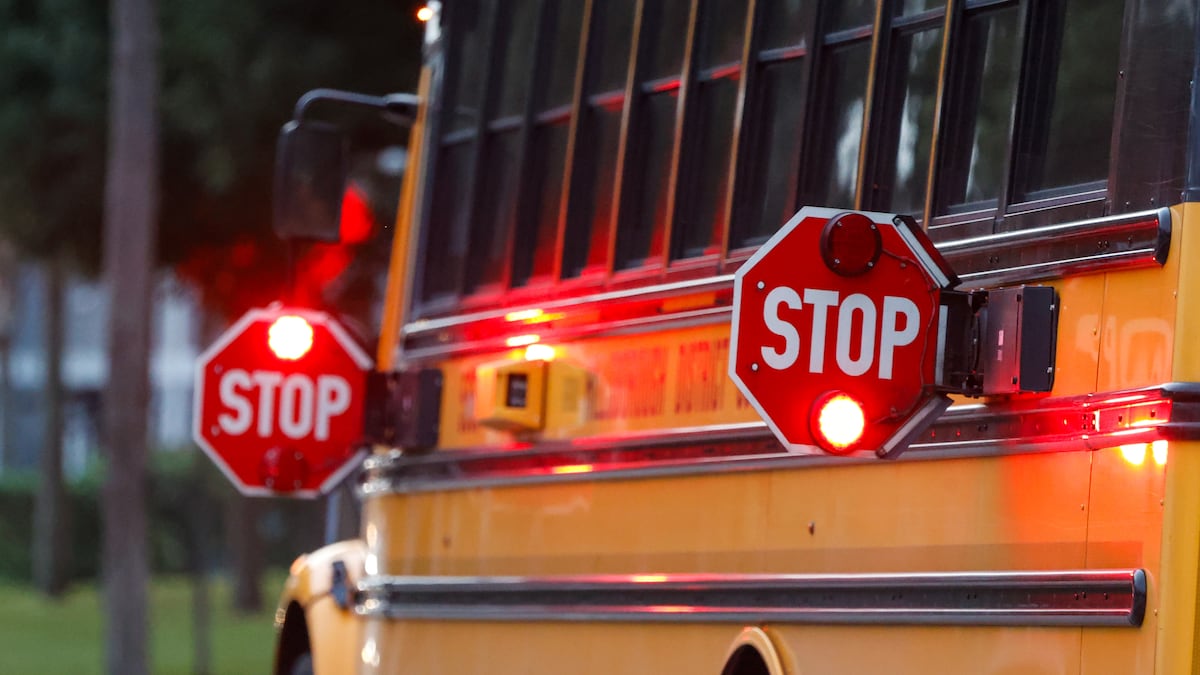
Woody Allen, the American comedian and filmmaker, famously remarked: “80% of success is showing up.” That’s probably obvious to anyone who’s been a parent, served in the military, played on a sports team or worked in the corporate world. It’s especially true for children during their student years. And it’s why Florida faces another brewing problem.
As you may know, school absenteeism across Florida spiked during the COVID-19 pandemic. But as a recent report showed, that rate hasn’t come back down, confounding experts and frustrating educators.
Nearly 1 million Florida students missed more than three weeks of school last year, according to a report by the Orlando Sentinel and the South Florida Sun Sentinel. That translates to more than 3 out of every 10 students, about the same as during the COVID era, according to the latest figures available. And it’s up from about 2 out of 10 for the school year before COVID.
The numbers shouldn’t surprise Tampa Bay residents. The rates are consistent with a Tampa Bay Times report last year, which found chronic absenteeism statewide at 31%, with ranges of between 28% and 31% for Pinellas, Hillsborough and Pasco counties.
These reports demonstrate the significant shift in attitudes about student attendance and how little Florida has done to get children back into the classroom. Some families are more casual about showing up. Others have changed housing or routines, or face economic or transportation hurdles in getting their children to school.
School absenteeism is a nationwide problem. However, Florida stands out for its large number of missing students and failure to find a statewide remedy. In the 2022-23 school year, for example, Florida ranked 40th nationally in its chronic absenteeism rate, meaning it performed better than only 10 other states. Last year, the advocacy group Attendance Works urged all 50 states to tackle absenteeism with an “all-hands-on-deck approach,” as the Sentinel noted. But Florida has not followed any of the group’s recommendations, and it was the only state that failed to respond when the group sought updated figures this year.
Florida lawmakers haven’t taken the matter seriously. A Senate spokesperson said leaders view attendance as a local issue best left to individual school districts. That hypocrisy is rich; Florida has no problem pushing a statewide agenda when it comes to banning books, subsidizing private school tuition or installing the governor’s cronies as college presidents. But hypocrisy aside, the state’s inaction ignores the scope of the problem and the dangers it presents to Florida.
First, it’d be one thing if this crisis was isolated. But chronic absenteeism in Florida has gotten worse in 66 of the state’s 67 counties, the Sentinel found. Absenteeism rose among high, middle and elementary school students, and it surged in all the state’s large metro areas. Unsurprisingly, it was also more pronounced in high poverty schools, where the rate was nearly double that of low poverty schools. If there was ever a statewide epidemic, this is it.
Spend your days with Hayes
Subscribe to our free Stephinitely newsletter
Columnist Stephanie Hayes will share thoughts, feelings and funny business with you every Monday.
Loading…
You’re all signed up!
Want more of our free, weekly newsletters in your inbox? Let’s get started.
Explore all your options
Second, Florida schools everywhere — from Miami to Pensacola — contribute to the state’s competitiveness. And experts have linked chronic absenteeism with a drop in math and reading test scores. Florida’s middle schoolers posted their lowest reading and math scores in more than 20 years on a 2024 national assessment, the Sentinel found, while the state’s fourth graders scored a 20-year low in reading. Also in 2024, Florida high school seniors posted the state’s lowest SAT scores in a decade.
Not having children in school costs them and our society in other ways, too. Students miss learning the building blocks of dealing with others and interacting in groups. They lose time in their formative years being mentally engaged and accepting the responsibility that comes with participating in team sports, yearbook and other extracurricular activities. Staying home also reinforces the false idea that we can remove ourselves from civic life. What a terrible notion to plant in a teenager.
School districts across Florida have tried many ways to draw children back, from contacting families and hosting pizza parties to making classes more interactive. Parents, of course, have a key role to play in a child’s well-being. But this is also a workforce issue that requires leadership from Tallahassee. The state could at least wage an advertising campaign, like the ones against drunk driving and smoking, that governments have long used to curb destructive behaviors.
Heck, get Florida’s school kids involved. Launch a poster competition. There’s a lot of hidden talent out there.
发表回复